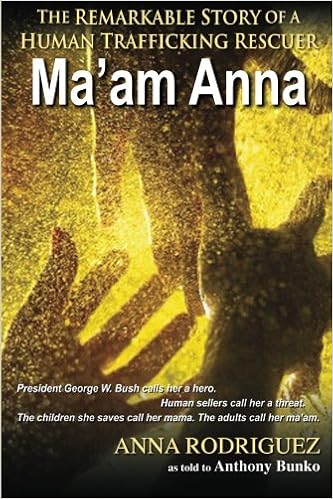Desmond Tutu: Una Biografía Espiritual del Confesor de Sur África
Rev. Michael Battle, Ph.D.
Herbert Thompson: Líder de la Iglesia y Sociedad:
Director del Centro Desmond Tutu
Seminario Teológico General, New York
Seria hipócrita de mi parte si no ofrecería esta reflexión acera de la reconciliación racial si no promoviese a un agente anglicano de la reconciliación racial. Lo hago, no porque quiera ufanarme de vender libros; en cambio, como una manera de ofrecer un artículo introductorio acerca del tema de reconciliación racial. Muchos de nosotros hemos pasado por la era apocalíptica del virus COVID-19, agitación social, y la polarización política. Un prominente líder dentro entre las mujeres de la Iglesia episcopal me escribió que ella había trabajado como una guardiana designada por la corte de aquellos con discapacidades mentales y por consiguiente observo de primera mano situaciones graves sobre la humanidad en necesidad de sanación y reconciliación. A pesar de ello, para algunos de nosotros, debido a nuestro estatus socioeconómico, nos damos cuenta de que estamos “resguardados” de estas tormentas apocalípticas, pero queremos ser parte de la solución y no del problema. Bueno, el agente anglicano que mencione arriba es una guía maravillosa para educarnos en lo atinente a estos tópicos, especialmente sobre el ministerio de reconciliación.
El Agente Anglicano que describí es, de hecho, una santa bajo mi perspectiva. Él es arzobispo Desmond Tutu, reconocido por su ministerio de reconciliación en Sur África y el resto del mundo. Por mi parte yo voy un poco más allá y lo catalogo como místico cristiano en mi nuevo libro, Desmond Tutu: Biografía Espiritual del Confesor de Sur África (Westminster John Knox Press, publicación el día 16 de marzo de 2021). Por más de 25 años, yo he visto de cerca la espiritualidad profunda que ayudo a Tutu a desmantelar el “apartheid”, tras haber vivido con Tutu en los años 1993 y 1994. Su espiritualidad esta enraizada en la práctica Cristiana Antigua a la vez que el concepto africano de Ubuntu, interdependencia Humana. En este libro yo examino como el misticismo Cristiano de Tutu forma su compromiso para la justicia restauradora y conciliatoria.
“La vida de Tutu y su trabajo son cruciales tanto para el bienestar del mundo como para la supervivencia de la iglesia que parece estar parcializada hacia la crisis y las guerras culturales,” Escribo. La pelea de Tutu en contra del “Apartheid” es una batalla espiritual, la cual engloba lecciones de como resistir el auge del nacionalismo cristiano de hoy. “Sometiendo al opresor para vea a Dios en la cara del oprimido fue su contribución más grande.” Concluyo. Para que el opresor pueda confesar que su Dios fue ultimadamente disminuido en la religión del “Apartheid’ fue un milagro que debemos replicar.”
En cualquier ministerio de reconciliación, necesitamos entender la fuente de la que fluye dicha reconciliación. Aunque yo puedo argumentar que las mujeres son más una fuente de reconciliación que los hombres, la última fuente de reconciliación es Dios mismo. Entendiendo a Tutu como un místico cristiano es esencial para comprender la siguiente perspectiva: “El objetivo de la vida de un místico es alcanzar la unión con Dios,” Yo explico en mi biografía sobre Tutu. La manera en que Tutu trato de alcanzar su meta no solo esta animada a través de su liderazgo en la iglesia, pero a través de su liderazgo político también. Tutu ofrece a la Iglesia Episcopal de mujeres inspiración y a la misma vez estrategia para ser una fuera política y espiritual para ser conciliatoria en un mundo apocalíptico. Al cultivar tal fuerza del alma la Iglesia de Mujeres Episcopales contrarresta el sistema de racismo y de falta de humanidad y establece en un mundo que carece de autoestima la practicidad de construir comunidades y redes de contactos que apoyen a todos los marginados en el mundo.
 Acerca del autor
Acerca del autor
Michael Battle es profesor de Herbert de la Sociedad e Iglesia y director del Centro General Teológico Desmond Tutu en Nueva York, y presidente y Jefe Estratégico del instituto PeaceBattle. El autor de 11 libros, incluyendo Reconciliación: La Teología Ubuntu de Desmond Tutu, el enfoca su ministerio en la no violencia, reconciliación cristiana, espiritualidad humana, y Ubuntu (La comunidad africana a nivel mundial) Battle vivió en residencia con el arzobispo Desmond Tutu en Sur África por dos años y fue ordenado sacerdote en Sur África por Tutu en 1993. En el 2010, le fue otorgado una de las condecoraciones más distinguidas en la Iglesia Anglicana como lo fue “Six Preacher.”
Para más información, visita su página web: michaelbattle.com

 About the Author
About the Author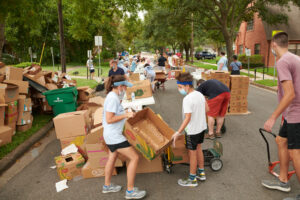 It started with a little blessing box beside the church and has become a major ministry to the community, and it couldn’t have come at a better time. The blessing box evolved into a weekly Houston Food Bank distribution site. Then, in the middle of the third month of operations, the pandemic hit. At this time, the organizers pivoted to a drive-through distribution, which at its peak has been visited by over 400 families a week. The parish hall, previously used for Christian formation and fellowship, became a food storage warehouse for pallets upon pallets of non-perishable food items.
It started with a little blessing box beside the church and has become a major ministry to the community, and it couldn’t have come at a better time. The blessing box evolved into a weekly Houston Food Bank distribution site. Then, in the middle of the third month of operations, the pandemic hit. At this time, the organizers pivoted to a drive-through distribution, which at its peak has been visited by over 400 families a week. The parish hall, previously used for Christian formation and fellowship, became a food storage warehouse for pallets upon pallets of non-perishable food items.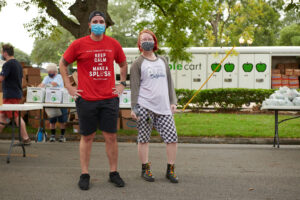 The drive-thru option allowed food to be given out in a safe way by the volunteers boxing up the food and then guests driving through the parking lot and the food delivered to their trunks. Some of these folks waited in the car line for up to two hours to get their food. It was calm and ordered, and all who received food were profoundly grateful.
The drive-thru option allowed food to be given out in a safe way by the volunteers boxing up the food and then guests driving through the parking lot and the food delivered to their trunks. Some of these folks waited in the car line for up to two hours to get their food. It was calm and ordered, and all who received food were profoundly grateful. My name is Monica Elias-Orellana. I was born in California and moved to Chelsea, Massachusetts, when I was 11 years old. It was then that I was introduced to the Episcopal Church, where I found myself embraced by God’s call to “serve thy neighbor.” I was taught early in life that I must help others even if I possess little.
My name is Monica Elias-Orellana. I was born in California and moved to Chelsea, Massachusetts, when I was 11 years old. It was then that I was introduced to the Episcopal Church, where I found myself embraced by God’s call to “serve thy neighbor.” I was taught early in life that I must help others even if I possess little.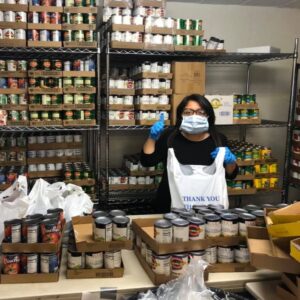 For me it is an honor to work with community members who, with love and dedication, serve families in need. My heart is full of joy and my eyes rejoice at seeing the beauty of local community members coming together to help one another. I have met incredible people who have worked many hours unloading boxes of food into the church, unpacking them, and distributing the food and other necessities given to the community. I admire that labor of love despite fears of exposure to the deadly virus. I am moved as I watch families come to the pantry for food and sometimes see tears and expressions of gratitude as they receive what they need to survive these difficult times.
For me it is an honor to work with community members who, with love and dedication, serve families in need. My heart is full of joy and my eyes rejoice at seeing the beauty of local community members coming together to help one another. I have met incredible people who have worked many hours unloading boxes of food into the church, unpacking them, and distributing the food and other necessities given to the community. I admire that labor of love despite fears of exposure to the deadly virus. I am moved as I watch families come to the pantry for food and sometimes see tears and expressions of gratitude as they receive what they need to survive these difficult times.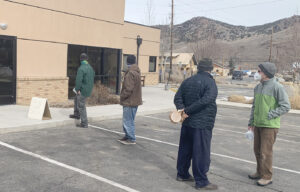 by Samar Fay
by Samar Fay